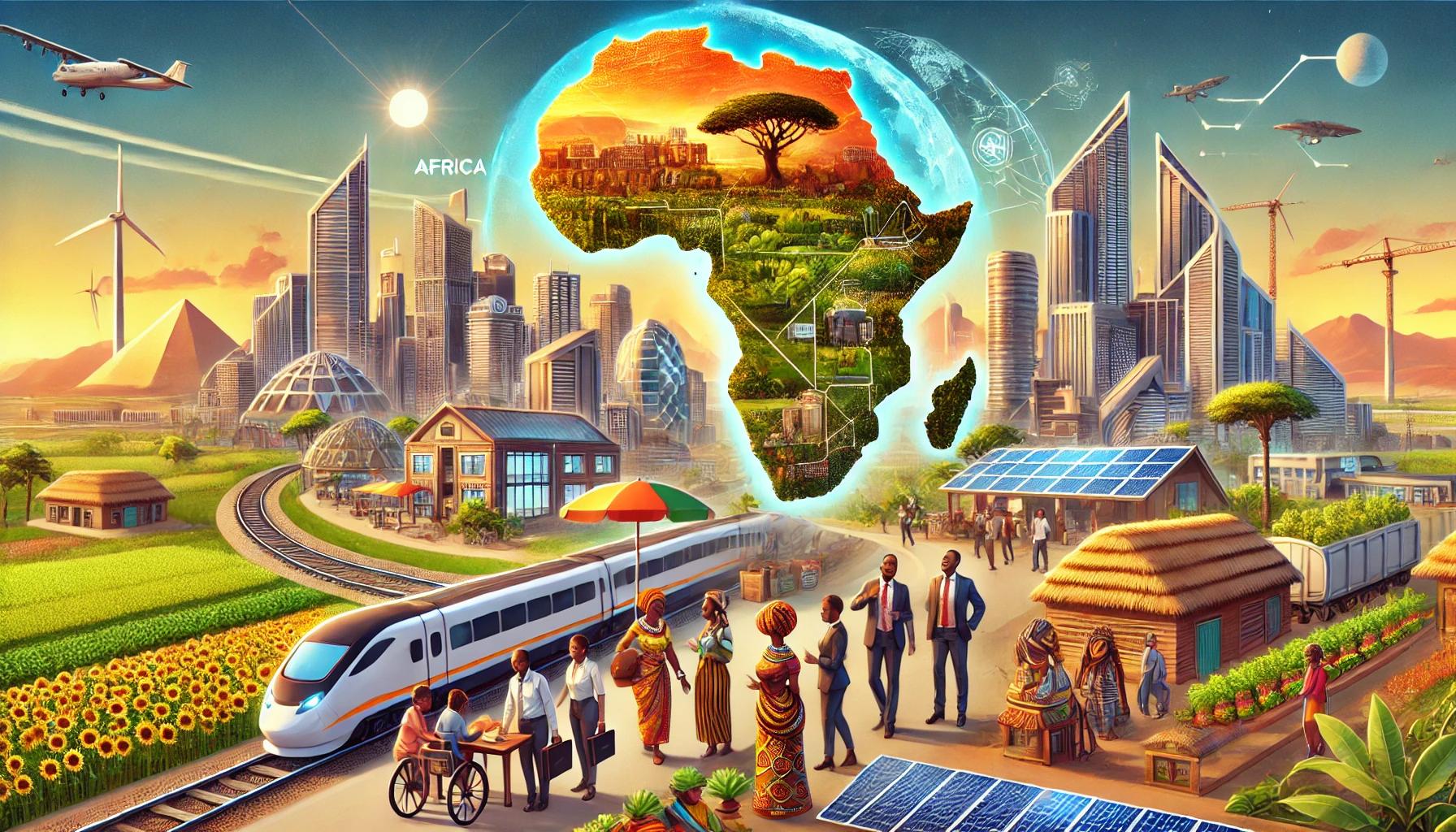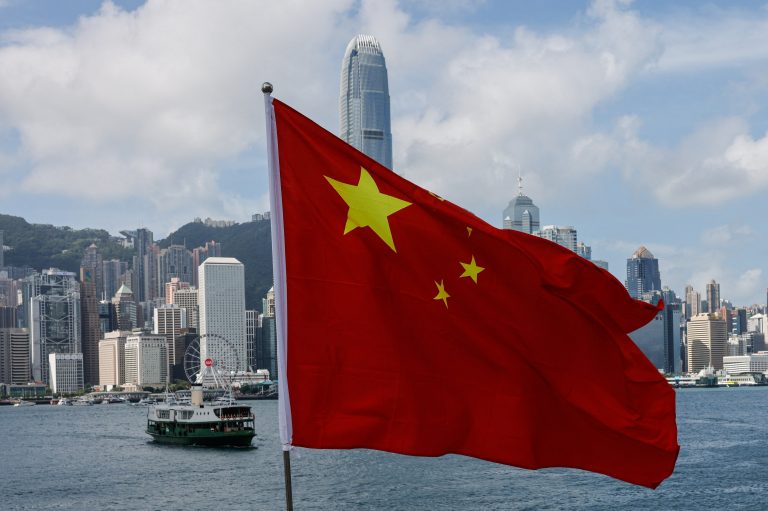
From Liberation to Shackles: How the Rush to Independence Trapped Africa in the Colonisers’ Financial Chains – And What Mandela Knew That Other Leaders Didn’t!
The mid-20th century was a period of dramatic change across Africa, as waves of independence movements dismantled centuries of colonial rule. From Ghana’s independence in 1957 to the rapid succession of other African nations achieving sovereignty in the 1960s, the excitement of self-determination swept the continent. However, questions have persisted regarding the extent to which these nations were truly prepared to govern themselves immediately after colonial administrations departed. Critics argue that the “rush” to independence inevitably resulted in newly formed states that continued to rely on former colonial powers for economic assistance, governance structures, and even security frameworks. This article examines the interplay between a hurried decolonisation process, the emergent dependence on former colonisers’ funding, Nelson Mandela’s model of engagement, and the lessons African leaders could have learnt to steer their countries towards genuine autonomy and sustainable development.
The Historical Rush to Independence
Between 1957 and 1975, over 30 African nations attained independence, often under pressing international and domestic circumstances. The Cold War context made superpowers inclined to support or oppose independence movements for strategic gains. European nations, weakened by two World Wars, were increasingly unable to sustain expensive colonial regimes. As nationalist sentiments gained momentum—with figures such as Kwame Nkrumah in Ghana, Patrice Lumumba in the Congo (now the Democratic Republic of the Congo), and Jomo Kenyatta in Kenya—there was less incentive for colonisers to maintain direct administrative control.
Preparedness and Capacity Building
The swiftness of the transition to independence meant administrative posts were hastily transferred to local leaders, many of whom had limited experience in governance. According to UNESCO data, literacy rates in sub-Saharan Africa averaged around 10–20% in the early 1960s. In places like the Belgian Congo, fewer than 30 university graduates (in some accounts, as few as 16) were available to fill senior administrative roles at independence in 1960. These low education levels hampered the new states’ abilities to run complex bureaucracies, plan economic policies, and negotiate effectively with foreign entities.
The Consequences of Dependent Development
Many African nations swiftly discovered that independence did not mean total self-sufficiency. As they grappled with nation-building and infrastructure development, they looked to their former colonisers for financial aid, technical expertise, and credit lines. According to data from the World Bank, external aid to sub-Saharan Africa grew from an average of US$1.1 billion per year in the 1960s to nearly US$17 billionby the 1980s, reflecting the continent’s reliance on foreign funds.
Economist Kwame Nkrumah famously used the term “neocolonialism” to describe how former colonial powers retained indirect control through economic means. Western (and later global) financial institutions provided loans with conditionalities that often steered economic policies. Structural Adjustment Programmes (SAPs) imposed by the International Monetary Fund (IMF) and the World Bank in the 1980s mandated austerity measures and trade liberalisation, shaping African economies in ways that primarily benefitted external interests rather than local development.
Learning from Nelson Mandela’s Approach
Negotiation Instead of Confrontation
Nelson Mandela’s leadership in South Africa, particularly during the early 1990s, offers a template for constructive engagement with former oppressors or colonisers. Faced with the apartheid regime—which functioned much like a colonial system imposed by the white minority—Mandela understood that negotiating a peaceful transition required dialogue, compromise, and vision. By working alongside former President F. W. de Klerk, Mandela secured the dismantling of apartheid without plunging South Africa into protracted civil unrest.
Balancing Moral Clarity with Pragmatism
Mandela’s approach was neither subservient to the former rulers nor naively combative. He demanded an end to oppressive policies while also collaborating to structure new governance frameworks that included everyone. For other African leaders emerging from direct colonial rule, this mindset could have fostered more effective governance structures and partnerships post-independence. In essence, engagement based on clear goals, but flexible methods, might have mitigated the worst forms of dependency that plague many African nations.
Building Institutions and Focusing on Reconciliation
The establishment of the Truth and Reconciliation Commission (TRC) symbolised Mandela’s commitment to institutional integrity and nation-building over vengeance. In a post-colonial context, investing in robust institutions—judicial systems, educational frameworks, and stable political structures—reduces vulnerability to external interference. Countries that followed a more Mandela-esque approach, prioritising inclusive governance and reconciliation, stand a better chance of attracting and utilising foreign assistance on their terms, rather than becoming overly reliant.
Was Africa Ready for Independence?
“Africa” is not monolithic. Countries such as Egypt, Ethiopia, and South Africa had relatively established bureaucratic or traditional governance structures. Others—like the Democratic Republic of the Congo or Angola—lacked the institutional depth or a well-trained civil service. The British and French colonial models often neglected extensive capacity building, focusing instead on resource extraction. As a result, many African states entered independence with rudimentary administrative and education systems.
Education Ratios and Human Capital
As noted earlier, UNESCO data underscores how unprepared many countries were in terms of human capital. In 1960, adult literacy rates in newly independent nations hovered between 10% and 30%, severely limiting the pool of qualified civil servants. While leaders such as Julius Nyerere in Tanzania championed universal education post-independence, large-scale improvements took decades and, in many cases, required foreign funding and expertise. This dual requirement—urgently needing foreign investment to build a workforce, yet hoping to reduce reliance on ex-colonial powers—set the stage for enduring dependency.
Post-Independence Sabotage and Ongoing Dependencies
Decolonisation coincided with the Cold War, when superpowers, including former colonisers, jostled for influence. Evidence suggests that certain African leaders were undermined or even overthrown with external help. The assassination of Prime Minister Patrice Lumumba in 1961, for instance, has been linked to Belgian and CIA involvement, illustrating how newly independent states were entangled in geopolitical power plays.
Beyond overt political meddling, “debt-trap” strategies and stringent loan conditions kept many African nations in a cycle of dependency. For example, structural adjustment loans in the 1980s forced cuts in healthcare and education, undermining long-term development. Researchers at the Overseas Development Institute (ODI) highlight how such policies contributed to a sustained reliance on foreign funding, perpetuating colonial-era economic patterns in which raw materials were exported cheaply, and finished goods were imported at a premium.
Statistical Comparisons: Then and Now
GDP Growth and Human Development
When compared to their colonial-era economies, many African countries have experienced notable GDP growth. According to the African Development Bank, average real GDP growth in sub-Saharan Africa hovered around 3.7% in the 2010s—higher than the global average during certain years. However, this growth remains uneven, with oil-exporting nations often skewing averages. Meanwhile, the UN Human Development Index (HDI) remains low for many African states, signalling that growth does not necessarily translate into holistic development.
Infrastructure and Connectivity
Under colonisation, infrastructure typically revolved around extractive industries and transport routes for resource export. Post-independence, more roads, schools, and hospitals have been built, but maintenance and expansion are frequently funded by external loans. Debt burdens remain high; as of 2020, the average debt-to-GDP ratio in sub-Saharan Africa was around 58%, according to the IMF. This elevated debt constrains fiscal space for independent policy-making.
Is Africa Doing Better or Worse?
On multiple indicators—infant mortality, access to education, women’s participation in politics—Africa has improved since colonial times. Yet, the region faces high levels of inequality, governance challenges, and recurring instability. Post-independence civil wars in countries like Angola, Mozambique, and Sudan highlight that the nature of governance—rather than colonial presence alone—significantly affects outcomes. Persistent governance deficits (e.g., corruption, electoral fraud) fuel the perception that external funding remains necessary to maintain basic stability.
The legacy of colonial rule, including arbitrary borders and resource extraction, often receives blame for ongoing underdevelopment. While these factors remain significant, other issues such as mismanagement, corruption, and lack of economic diversification also play important roles. Think tanks like Transparency International routinely rank several African countries among the lower tiers in their Corruption Perceptions Index, suggesting internal issues may be as detrimental to progress as any external constraints.
Why Do African Countries Still Blame Colonisers?
Historical Injustices and Structural Constraints
Colonial exploitation laid the foundation for resource-dependant economies, often reliant on a single export commodity. By design, this hampers diversification and perpetuates trade imbalances. As such, when crises strike—such as plunging commodity prices—many African governments argue that the structural frameworks inherited from colonisation hinder self-reliance.
Although formal colonisation ended, foreign nations still wield substantial influence in investment, trade, and security. Weapons sales and military “advisory” roles remain controversial. In some instances, ex-colonial nations maintain military bases or use development aid as leverage for political outcomes, reinforcing the perception of continued manipulation.
Countries Embracing Mandela’s Mindset
Botswana, while not a direct parallel to Mandela’s approach to apartheid, offers an example of prudent negotiations and stable institutions post-independence. Since 1966, it has grown from one of the world’s poorest nations to an upper-middle-income country. According to the World Bank, Botswana’s GDP per capita increased from around US$80 in 1966 to over US$8,000 by 2020. A key driver was a transparent partnership with foreign diamond companies (notably De Beers), ensuring revenues funded education, healthcare, and infrastructure. This cooperative yet assertive engagement resonates with Mandela’s principle of negotiating for mutual benefit.
Following the 1994 genocide, Rwanda emphasised reconciliation, akin to Mandela’s TRC-inspired framework. President Paul Kagame’s government invested in unity programmes and made deals with international partners on Rwandan terms—targeting technology, manufacturing, and service sectors. Though criticised for tight political controls, Rwanda has improved healthcare and education standards significantly, with literacy rates climbing from 52% in 1994 to over 70% in 2020, as per UNESCO estimates.
The Education Gap at Independence
Ratio of Educated People at Independence
In countries like Ghana, Nigeria, and Kenya, secondary and tertiary education was limited under colonial rule. By 1960, Ghana had less than 1% of its population in tertiary education. Nigeria, despite being populous, produced only a few thousand university graduates annually at independence. When these countries demanded sovereignty, the short supply of educated professionals—many of whom were still studying abroad—led to administrative bottlenecks. Although this improved over the decades, it underscores how independence outpaced educational preparedness.
Cutting Ties with Colonisers and New Western Allies
Some African countries, notably Mali, and Guinea under Sékou Touré, and more recently, nations like Zimbabwe under Robert Mugabe, tried severing strong ties with their former colonisers. The outcomes varied. Zimbabwe’s land reform programmes led to international sanctions, hyperinflation, and economic collapse, illustrating how isolating from former colonisers without robust alternative alliances can be perilous. Other states have sought new Western partners or non-Western allies (e.g., China, Russia, Turkey), aiming to diversify their external relations.
While fresh partnerships can foster development projects—such as China’s infrastructure investments through the Belt and Road Initiative—critics argue that these arrangements can replicate colonial-style dependency if not carefully managed. Kenya’s Standard Gauge Railway, heavily financed by Chinese loans, raised concerns over debt sustainability. Hence, leadership that balances national interests, demands accountable engagement from foreign allies, and invests in local capacity remains crucial to avoid replicating old patterns of dependence.
The Road to a United Africa
The African Union’s Dream of Unity
The African Union (AU) envisions an integrated and peaceful continent under frameworks like Agenda 2063, which aims to enhance political and economic cooperation. Challenges to this vision include disparate economic policies, security issues (e.g., terrorism in the Sahel), and governance differences among member states. Without harmonised policies and stronger institutions, the notion of a truly united Africa may remain aspirational.
Overcoming Challenges Without External Assistance
Key hurdles for the AU include funding reliance on external donors, disparate political will among leaders, and the limited capacity of AU structures to enforce collective decisions. To reduce foreign dependence, the AU can encourage intra-African trade via the African Continental Free Trade Area (AfCFTA), strengthen the African Peace and Security Architecture, and promote cross-border infrastructure that fosters continental integration. These measures hinge on robust home-grown leadership and the willingness of African nations to commit resources and sovereignty for a collective future.
The Evolving Role of Former Colonisers
While direct political control has ceased, former colonisers remain entrenched in African economies through multinational corporations, trade agreements, and financial institutions. Some maintain an interest in arms sales and military bases, raising the question: do they truly empower Africa or perpetuate a cycle of dependency?
Multiple NGOs—including Oxfam—point out that aid sometimes comes with hidden strings, such as preferential contracts or pressure to purchase military equipment. This duality can exacerbate conflict; for instance, arms exports and peacekeeping interventions often originate from the same countries, muddying the sincerity of the “help” offered. As long as Africa’s governance frameworks lack transparency, accountability, and resilience, external influences—whether from former colonisers or new global powers—will exploit the vacuum.
Conclusion: A Call for Informed, Compassionate Leadership
For Africa, independence was a monumental leap forward—one that ended overt exploitation and offered the promise of self-determination. However, the hurried nature of decolonisation, coupled with insufficient preparation in governance and education, created fertile ground for continued reliance on former colonial powers. Many African leaders faced complex realities, from Cold War-era politics to domestic challenges, that stifled the continent’s aspirations for genuine autonomy.
Yet, Nelson Mandela’s legacy illuminates a path that balances moral clarity, practical negotiation, and institutional strength. His willingness to engage with adversaries—including the very architects of apartheid—without sacrificing the broader vision of freedom, equity, and reconciliation, remains a powerful blueprint. Countries such as Botswana and Rwanda have, in their own ways, harnessed the principles of constructive engagement and robust institutional building, demonstrating that African states can forge partnerships on more equitable terms.
To truly break the cycle of dependency, Africa requires visionary leadership that invests in education, stamps out corruption, and embraces pan-African collaboration. Such an approach demands emotional intelligence and empathy for the lived experiences of ordinary people, ensuring that new partnerships—be they with Western powers or emerging global players—are transparent, mutually beneficial, and geared towards sustainable development. It is time for African leaders, policymakers, and citizens alike to converge around these principles, refuse outdated divides, and co-create a future worthy of the continent’s rich human and natural resources.
In doing so, Africa can transcend its colonial legacy, stand firmly on its own feet, and inspire global admiration for its resilience, cultural depth, and economic dynamism. The emotional toll of centuries of exploitation cannot be undone overnight, but a collective, deliberate, and compassionate approach can indeed heal wounds, foster hope, and galvanise the world’s second-largest continent towards a destiny defined by African agency—rather than by external patronage.
Aric Jabari is the Editorial Director of the Sixteenth Council.



